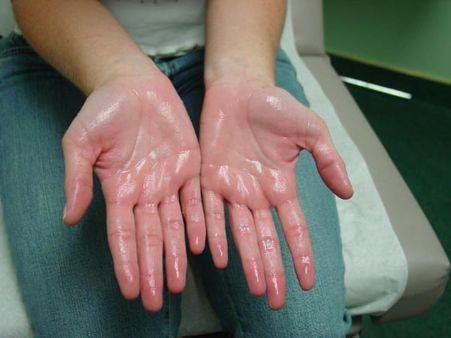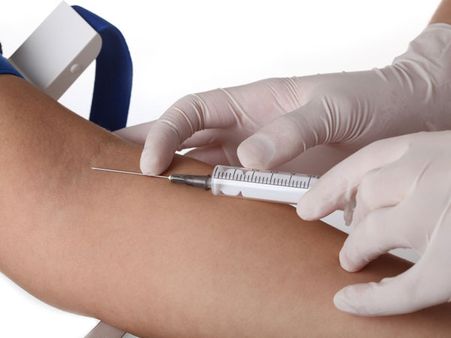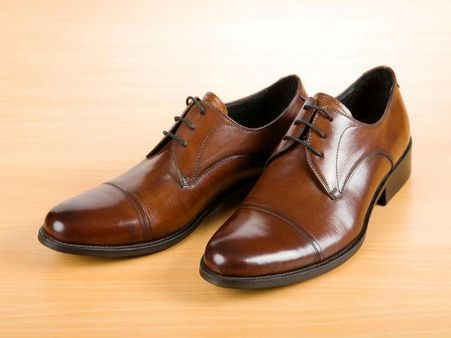Just In
- 1 min ago

- 3 hrs ago

- 4 hrs ago

- 9 hrs ago

Don't Miss
- Finance
 Results, Dividend, Fundraise On April24: Buy Top Bank Stock Amid Rich Valuation, TP Rs 1400: Nomura
Results, Dividend, Fundraise On April24: Buy Top Bank Stock Amid Rich Valuation, TP Rs 1400: Nomura - Sports
 Who Won Yesterday's IPL Match 33? PBKS vs MI, IPL 2024 on April 17: Mumbai Indians Escape Last-Ditched Fight by Punjab Kings To Win
Who Won Yesterday's IPL Match 33? PBKS vs MI, IPL 2024 on April 17: Mumbai Indians Escape Last-Ditched Fight by Punjab Kings To Win - Movies
 Do Aur Do Pyaar OTT Release Date & Platform: When & Where To Watch Vidya Balan’s Film After Theatrical Run?
Do Aur Do Pyaar OTT Release Date & Platform: When & Where To Watch Vidya Balan’s Film After Theatrical Run? - News
 BRS Chief K Chandrasekhar Rao Slams BJP, Says K Kavitha's Arrest Is Vendetta Politics
BRS Chief K Chandrasekhar Rao Slams BJP, Says K Kavitha's Arrest Is Vendetta Politics - Automobiles
 Aprilia RS 457 Accessories: A Detailed Look At The Prices
Aprilia RS 457 Accessories: A Detailed Look At The Prices - Education
 Karnataka SSLC Result 2024 Soon, Know How to Check Through Website, SMS and Digilocker
Karnataka SSLC Result 2024 Soon, Know How to Check Through Website, SMS and Digilocker - Technology
 Nothing Ear, Ear a With ANC, Up to 42.5 Hours of Battery Launched; Check Price and Availability
Nothing Ear, Ear a With ANC, Up to 42.5 Hours of Battery Launched; Check Price and Availability - Travel
Telangana's Waterfall: A Serene Escape Into Nature's Marvels
Is Hyperhidrosis (Excessive Sweating) A Medical Condition: Causes, Symptoms And Treatments
Hyperhidrosis is a medical condition characterised by excessive sweating, especially from the palms, feet and armpit. Hyper means 'too much' while hidrosis means 'sweating'. It is a rare and non-life-threatening condition but can affect a person's quality of life.

Around five per cent of the world's population suffers from the condition. Though it can affect people of all ages, it is common in people aged between 24-64. The irony is, the condition can also occur in healthy people who don't have any underlying conditions.


What Is Hyperhidrosis?
Sweating is a normal body phenomenon just like breathing. It helps cool the body down and prevents overheating. Our body adjusts to the surrounding temperature, a reason why we sweat more in summer while less in winter. Some triggers like excessive workouts, stress and fear also cause more sweating.
Sweating becomes a disorder when a person sweats a lot even in unusual situations or without any triggers. It means they sweat even in cool temperatures or without any physical activity. Bodies of these people start sweating even when they do not require cooling. [1]
People who have hyperhidrosis not only sweat from a single body part, but from multiple areas of the body. The other parts of their body remain dry while some parts sweat in excess.

Types Of Hyperhidrosis
There are two types of hyperhidrosis:
- Primary Focal Hyperhidrosis (PFH): It usually starts during childhood without any medical conditions. A study says that people with PFH have a family history of the condition. [2]
- Secondary Focal Hyperhidrosis (SFH): It probably begins during adulthood as a result of underlying diseases or certain medications. Medical conditions like diabetes, obesity, tumour, thyroid dysfunction, Parkinson's disease, infections, gout, mental illness (like anxiety) and injury could be the cause.

Causes of Hyperhidrosis
There are around 2-4 million sweat glands distributed all over the human body. Eccrine glands are the major sweat glands among them. PFH is generally related to genetic as 30-65 per cent of hyperhidrosis patients have a family history. These people often have certain psychological problems.
On the other hand, SFH is related to central or peripheral neuronal defects. Medical conditions linked to nervous system disorder or neurogenic inflammation such as diabetes causes nerves to become overactive and product more sweat [3] The condition is also found in women who are about to or undergoing menopause. Chronic alcoholism is also linked to hyperhidrosis. [4]


Symptoms of Hyperhidrosis
- Excessive sweating on both sides of the body
- Sweating while sitting or shaking hands
- Wet palms, soles all the time
- Noticeable sweating that makes you change clothes several times a day
- Fungal or bacterial infections
- Social withdrawal due to embarrassment

Complications of Hyperhidrosis
Hyperhidrosis can lead to softening, whitening or peeling of the skin. It may also increase the chances of bacterial or fungal infections. These issues can be, however, treated by medications but factors like embarrassment in the crowd, unable to shake hands, self-consciousness or less human interactions may lead to anxiety and depression. [5]

Diagnosis of Hyperhidrosis
- Physical examination: This is the first phase of diagnosis. A medical expert will ask questions about episodes of excessive sweating, any mental illness, trauma, injury or any preexisting medical conditions.
- Blood and urine tests: To rule out conditions like hypothyroidism or diabetes.
- Iodine-starch test: To identify the exact areas in the body where there is excessive sweating. [6]
- Paper test: To calculator the amount of sweat produced.


Treatment of Hyperhidrosis
- Antiperspirants: To reduce the excess production of sweat. It is given to patients with mild symptoms of hyperhidrosis.
- Iontophoresis: It includes sending mild electric currents through the water to the patient's skin. This helps in blocking the excessive sweat glands. [7]
- Anticholinergic drugs: To block the neurotransmitter named acetylcholine involved in sending signals to sweat glands to open at unusual conditions.
- Botox: To block the nerves that stimulate sweat glands.
- Surgery: Removal of sweat glands from the body parts that produce excessive sweat.

Management of Hyperhidrosis
If you have hyperhidrosis, you can:
- Wear leather made shoes as it allows proper ventilation and prevents infections.
- Wear washable armpit pads or garment shield in areas such as armpits to protect garments from wetting out.
- Wear loose clothes.
- Avoid wearing fabric materials such as nylon or synthetic fibres.
- Wear socks that draw off the moisture away. Also, avoid repeating the socks the other day.

Common FAQs
1. Is hyperhidrosis curable?
If the condition is genetic, only the symptoms can be managed. If hyperhidrosis is due to an underlying conditions, it can go once the medical condition is cured.
2. How can I stop excessive sweating?
You can stop excessive sweating by medications like antiperspirants and anticholinergic drugs. Botox also works for hyperhidrosis as it helps block the nerve signals that stimulate sweat glands.
-
 postnatalPostpartum Sweating: How Long Postpartum Night Sweats Last? Remedies
postnatalPostpartum Sweating: How Long Postpartum Night Sweats Last? Remedies -
 wellnessTips To Keep Your Heart Healthy During The Summer
wellnessTips To Keep Your Heart Healthy During The Summer -
 wellnessSummer, Buttermilk And Weight Loss: Are They Related?
wellnessSummer, Buttermilk And Weight Loss: Are They Related? -
 wellnessWhat Are The Causes Of Hot Flashes? Menopause, Smoking, Obesity And More
wellnessWhat Are The Causes Of Hot Flashes? Menopause, Smoking, Obesity And More -
 disorders cureIntertrigo (Inflammation Of Skin Folds): Causes, Symptoms, Risk Factors, Treatments And Prevention
disorders cureIntertrigo (Inflammation Of Skin Folds): Causes, Symptoms, Risk Factors, Treatments And Prevention -
 disorders cureHeat Cramps: Is It A Serious Condition? Causes, Symptoms, Risk Factors, Treatments And Prevention
disorders cureHeat Cramps: Is It A Serious Condition? Causes, Symptoms, Risk Factors, Treatments And Prevention -
 wellnessDid You Know That Normal Sweating May Indicate Health Problems?
wellnessDid You Know That Normal Sweating May Indicate Health Problems? -
 wellnessInfrared Sauna Treatment: Benefits, Safety And Potential Side Effects
wellnessInfrared Sauna Treatment: Benefits, Safety And Potential Side Effects -
 wellnessHow Does Ayurveda Treat Hyperhidrosis/Excessive Sweating?
wellnessHow Does Ayurveda Treat Hyperhidrosis/Excessive Sweating? -
 skin careBest Ways To Reduce Facial Sweating During Summer Season
skin careBest Ways To Reduce Facial Sweating During Summer Season -
 disorders cureDo You Sweat A Lot? These Natural Remedies Help Reduce Sweating
disorders cureDo You Sweat A Lot? These Natural Remedies Help Reduce Sweating -
 wellnessThe Right Home Remedies To Prevent Excessive Sweating
wellnessThe Right Home Remedies To Prevent Excessive Sweating


 Click it and Unblock the Notifications
Click it and Unblock the Notifications



